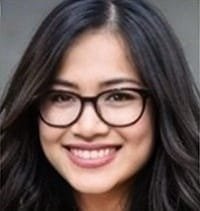On Women Creators: Exploring the Impact & Influence of Women in the Arts
Throughout most of the history of arts, women were the subjects of artworks, sculptures, literary works and plays. They filled this role rather than getting promoted as the innovative forces behind their evolution.
Although this is starting to change in the 21st century, more work needs to be done to recognize these contributions. Women have played an essential role in the arts for centuries, and their creations are finally starting to gain recognition, feature in galleries, and get sold at impressive prices at art auctions.
As the world focuses more on inclusion, diversity and equality, more women are starting to take center stage in the art market. And their predecessors are being hailed as pioneers of the wealth of artistic material we have access to today.
In light of this welcome shift, we’ve explored women creators’ impact and influence on the arts throughout history and currently. We’ve also delved deeper into how the world is working to increase the presence of women in the arts. So, now’s your chance to learn more!
women in art history
Women have shaped the art world for centuries. Many people already know the names of iconic artists like Angelica Kauffman, Hilma af Klimt, Georgia O’Keeffe, and June Leaf. These artists all contributed significantly to the visual arts sphere. But there are many other lesser-known artists and visionaries who deserve recognition too.
BIPOC, indigenous, and trans women specifically have played a critical role in the history of modern arts. South African Miriam Makeba used her voice as a vessel to draw attention to the oppressive Apartheid regime. She accepted a 30-year exile period to bring hope to the people suffering under the rule of the South African government at the time. Frida Kahlo captured the experience of women in her unique and vivid artworks while experiencing physical disability and illness.
Vaudeville actress and civil rights activist Josephine Baker used her talents to become the first African American woman to feature in a motion picture film. She was also the first to perform with a multi-racial cast at a concert hall.
These are just a few of the women who’ve pushed the boundaries of the arts, shared the complexity of women’s experiences, and brought new perspectives to the public’s eye. They have worked, often behind the scenes, to fight for social justice, speak up for the voiceless, and build a more inclusive future for all.
women pioneering modern arts
Women, and specifically trans folks, are still pioneering progress in modern arts today.
Cindy Sherman creates punchy self portraits that portray her in specific characters to address social issues, gender roles, and stereotypes around women. Jenny Saville’s nude portraits normalize bodies of all shapes and sizes. Wangechi Mutu produces Afro-futurist and surreal mixed media collage artworks that raise important questions around race, gender, climate change, and themes of personal identity.
Artist Julianna Hustable uses multimedia to explore and examine socio-political issues of the everyday world, and Yishay Garbasz’s cinematic, photographic, and exhibition works explore the topics of trauma and post-traumatic experiences as a trans woman.
Each of these artists – and many more – is actively sharing their stories and promoting social change to create a more diverse and tolerant world.
increasing the presence of women in the arts
Data from the National Museum of Women in Arts shows that around 51% of today’s visual artists are women. But this number is often not reflected in galleries, museums, exhibitions, and other artistic spaces.
The art industry is changing.
Now, art institutions are encouraged to display more diverse artworks from artists from all walks of life, lest they’re rendered irrelevant or obsolete. One of the best ways to prevent this is to reach into history and readdress the women in art who’ve been forgotten. Highlighting these women shows that women in art culture has been alive and well for centuries, and is much more than a simple novelty that fringes the ‘rest’ of the art world.
Women should also benefit from more financial support to gain access to the opportunities they need to share their voices as artists. Exhibits and galleries should invest in more women's works of art, and writers and critics should draft more pieces on women artists. In turn, the public should visit more exhibits that celebrate the diversity of women creators to increase these women’s visibility in the arts.
the future is feminist
Contrary to popular belief, women have always driven progress in the art world. Despite the fact that many talented visual artists, curators, muses, writers, playwrights and performers have been marginalized for their gender.
The presence of women in the arts now needs to get featured front and center. This will help to reflect modern-day diversity and provide an accurate and inclusive representation of both the history and future of art.
Angelica Hoover combines her interests in clean eating, taking care of her nieces and nephews, and journalism as a freelance writer and editor for health and family publications. She likes pour-over coffee, walking in nature, and green living.
GET HELP NOW
If you are interested in therapy with Kindman & Co. and would like to learn more about the services we have to help you, follow these quick & easy steps:
Schedule a free 20-minute phone consultation with our Care Coordinator.
Get matched with the therapist who’s right for you.
Start feeling more supported and fulfilled in your life and relationships!
THERAPY SERVICES AT KINDMAN & CO.
We are here for your diverse counseling needs. Our team of therapists provides lgbtqia+ affirmative therapy, couples therapy & premarital counseling, grief & loss counseling, group therapy, and more. We have specialists in trauma, women's issues, depression & anxiety, substance use, mindfulness & embodiment, and support for creatives. For therapists and practice owners, we also provide consultation and supervision services! We look forward to welcoming you for therapy in Highland Park and online.


